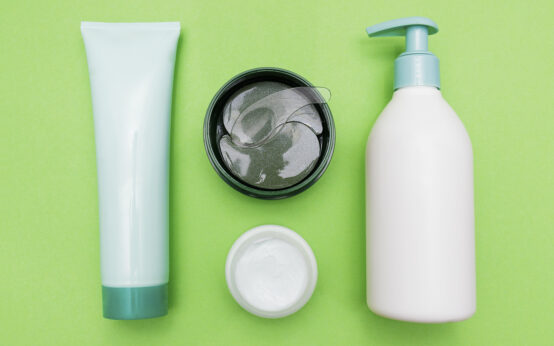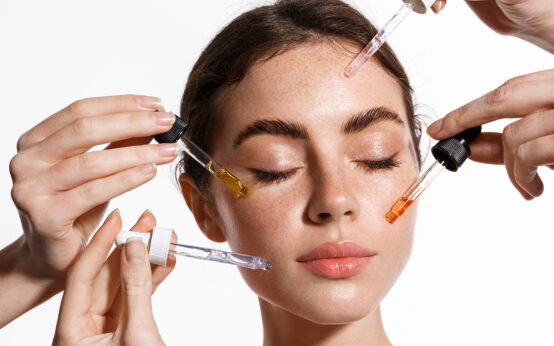When you are selecting a face moisturizer, there are several factors that you need to consider. One of the most important considerations is what type of skin you have. There are two different types of skin: dry and oily. It is best to look for a moisturizer that is specifically made for your skin type. In addition to choosing the right moisturizer, you should choose a product with ingredients like hyaluronic acid and retinol.
Factors to consider when choosing a face moisturizer

Whether you're looking for a face moisturizer to keep your skin fresh and glowing all day, you need to find the right one. Your skin type may depend on factors such as climate, smoking, and the amount of UV exposure you get. While thicker formulas are more luxurious, they can also become overly heavy and clog your pores. As such, you should be sure to determine your skin type before selecting a face moisturizer.
The texture of the moisturizer is another factor to consider. If you have normal skin, a light, non-greasy moisturizer will do. If you have dry skin, however, you should opt for a thicker, creamier product. You should note the texture of the moisturizer you try so that you can avoid it in the future. After washing your face, make sure to leave it for an hour before applying it to your face.
Skin type: What type of skin do you have? Dry skin requires a heavier moisturizer, while oily skin needs a lighter one with less oil. For oily skin, look for a lotion or gel with ingredients like hyaluronic acid or urea. Remember that the type of moisturizer you choose should complement the rest of your skincare regimen. If you're looking for a product that will work well on your skin, try to find a brand that offers complete regimens.
Preservatives: Some moisturizers contain parabens. Parabens help cosmetics last longer. Butylparaben is the most commonly used one. Butylparaben is also safe to use in cosmetic products. However, parabens can cause irritation, so you should avoid them. If you can't choose the one with a lower percentage of parabens, opt for a natural one instead.
Ingredients to look for in a moisturizer
What ingredients should you look for in a face moisturizer? A good moisturizer contains three basic components: emollients, humectants, and occlusives. The balance of each is important to your skin. You should also look for added ingredients that will protect the skin barrier and promote skin health. Ceramides, niacinamide, and salicylic acid are excellent examples.
When choosing a face moisturizer, be sure to read the ingredient list closely. Many moisturizers contain fragrance, which is the leading cause of skin sensitivity and allergic reactions. A study revealed that 83 percent of all drugstore creams contain fragrances. Fragrances may be synthetic or natural, and they can contain problematic components such as geraniol, linalool, and limonene. Fragrance is the first thing people notice when trying a new product, but it can be as subtle as a scentless ingredient.
Glycerin is another popular ingredient in face moisturizers. It acts as a humectant and keeps skin hydrated by attracting water to the top layer of the skin. It works with other ingredients, including shea butter, to provide the most moisture. Hyaluronic acid, another humectant, is another great ingredient to look for. It has the ability to hold up to a thousand times its weight in water.
If your skin is dry, identifying key occlusives is crucial. A gold standard for occlusives is petrolatum, but other great occlusives include shea butter and beeswax. If the face moisturizer you're considering is a sleeping cream, check out whether it contains it. Although sleeping creams are technically a moisturizer, they are often more dense than facial products.
Retinol

The best Retinol for face moisturizers are those that contain a stable percentage. If you're looking for a moisturizer that contains the highest percentage of retinol without the high cost, you can choose a drugstore cream that contains retinol. These creams are nongreasy, hydrating and can help calm inflammation and prevent wrinkle formation. They can also be very effective night creams.
Retinol is drying, so you should always use a moisturizer that contains other moisturizing ingredients. If your skin is sensitive, you should start out using retinol every other night and then slowly increase your usage. If you have dry skin, apply a pea-sized amount every other night, and then work your way up to nighttime use. You'll soon see a difference in your complexion.
You can choose a cream that contains retinol or another type of retinoid. Most of these creams are not photo-stable, so you should avoid exposure to sunlight while using a retinoid-containing product. They also differ in their potency and strength, so it's important to read the labels carefully. The best Retinol for face moisturizers are the ones that contain 0.1 percent of retinoic acid or higher.
If you're looking for a moisturizer with retinol, you'll find several brands with varying concentrations. Some are medical grade, while others are not. Retinol is generally safe for all skin types, though pregnant or breastfeeding women should avoid products with higher concentrations of this ingredient. And it's important to note that people with darker skin types are more sensitive to retinol.
Hyaluronic acid
When choosing a face moisturizer with hyaluronic acid, choose one that contains multiple molecular weights. Smaller molecular weights can penetrate deeper into the skin and provide hydration to those layers. Larger molecular weights may not penetrate deeply enough to give the same benefits to skin. The best moisturizers contain a combination of these molecular sizes. Your dermatologist can offer customized advice for your unique skin condition and recommend the right hyaluronic acid formula for your skin.
While the benefits of hyaluronic acid are many, the main benefit is its ability to plump skin cells and minimize the appearance of fine lines and wrinkles. Hyaluronic acid can help moisturize skin that is prone to irritation and redness. While it is not an exfoliator, it does stimulate the body to produce its own hyaluronic acid. Hyaluronic acid is a naturally occurring sugar that is produced by the body.
Ideally, a hyaluronic acid face moisturizer should be used two times a day. Serums should be applied after cleansing the skin. You should use moisturizer over your serum to lock in moisture. Most people see results within a couple of weeks of using hyaluronic acid. Alternatively, you can opt for injectable dermal fillers to achieve bigger results.
When choosing a hyaluronic acid face moisturizer, you should look for the amount of sodium hyaluronate and hyaluronic acid. While sodium hyaluronate is the same ingredient as hyaluronic acid, it has a lower molecular weight and can penetrate your skin more easily. If you're looking for a cream or serum with higher concentrations, consider purchasing a dermatologist-approved formula.
Phytoretinol

A Phytoretinol face moisturized helps restore youthful skin to normal, healthy conditions. This antioxidant-packed ingredient is found in many high-end skincare products. However, some people are allergic to the substance. If this is the case, an effective plant-based alternative is available. If you're looking for a natural alternative, BareMinerals AGELESS Phyto-Retinol Face a Cream is a great option. It provides effective anti-wrinkle benefits and reduces fine lines and uneven skin texture.
BareMinerals Phyto-Retinol Face Cream has a rich and creamy texture that quickly melts into your skin. Unlike traditional retinol, it doesn't irritate sensitive skin. Its non-comedogenic formula works to improve skin texture and tone, and it's dermatologist-tested for safe use. The jar is also vegan and cruelty-free.
BareMinerals Ageless Phyto-Retinol Face Cream is a vegan retinol face cream that reduces fine lines and wrinkles without causing redness. It's also free of gluten and parabens. It provides a deep moisturized, healthy-looking complexion without irritation, redness, or dryness. If you're concerned about your skin's sensitivity to retinol, bareMinerals Ageless Phyto-Retinol Face Cream is an excellent choice.
The BareMinerals Ageless Phyto-Retinol Face Cream is free of the top allergens. It's also 91% top allergen-free, meaning it's free of nickel, Lanolin, MCI/MI, and dye. Suitable for all skin types, bareMinerals Ageless Phyto-Retinol Face Cream is available online at bareMinerals.


 What to Look For in a Moisturizer
What to Look For in a Moisturizer  The Best Face Moisturizer For Sensitive Skin
The Best Face Moisturizer For Sensitive Skin  What to Look For in a Moisturizer For Oily Skin
What to Look For in a Moisturizer For Oily Skin  Benefits of a Facial Toner
Benefits of a Facial Toner  Finding the Best Moisturizer For Dry Skin
Finding the Best Moisturizer For Dry Skin